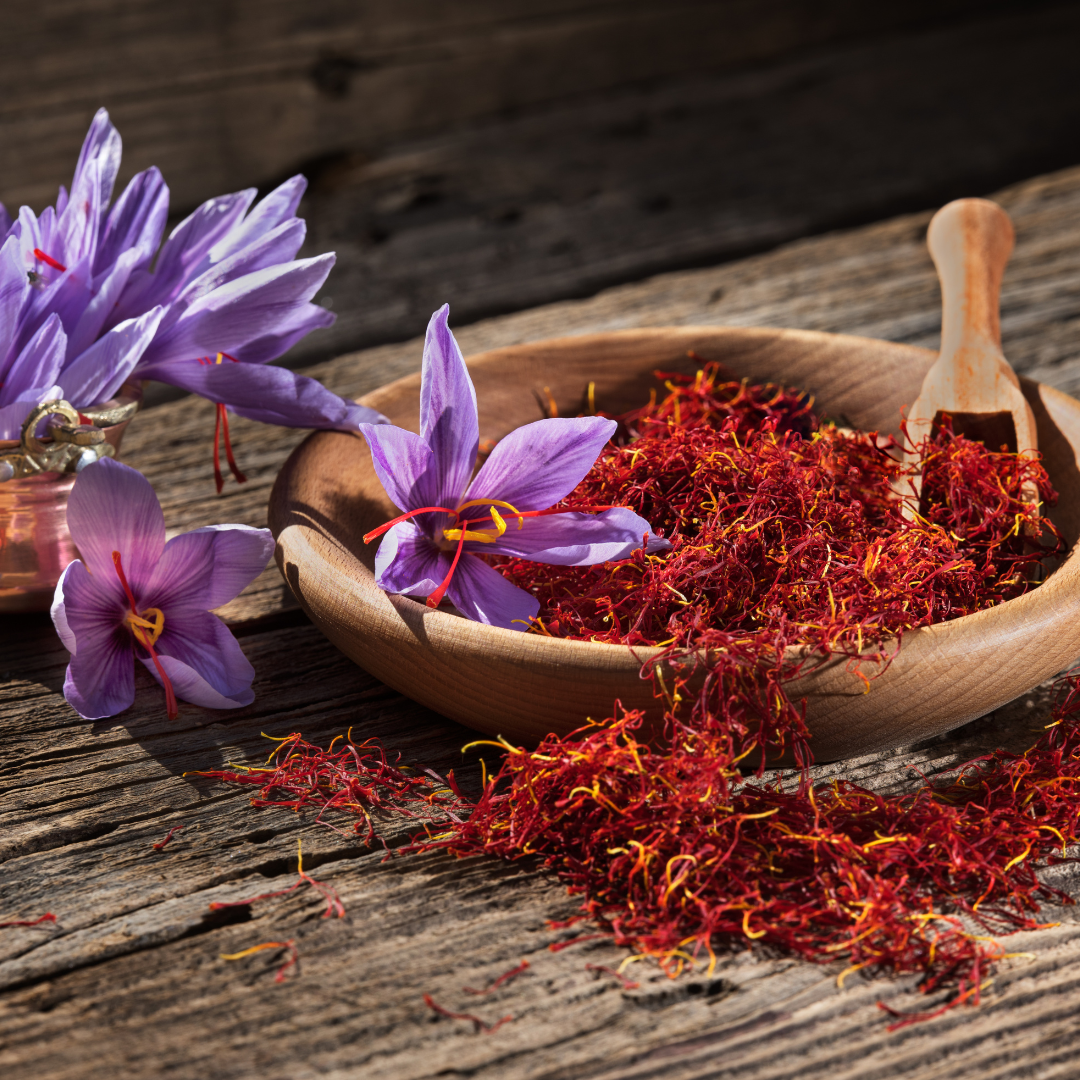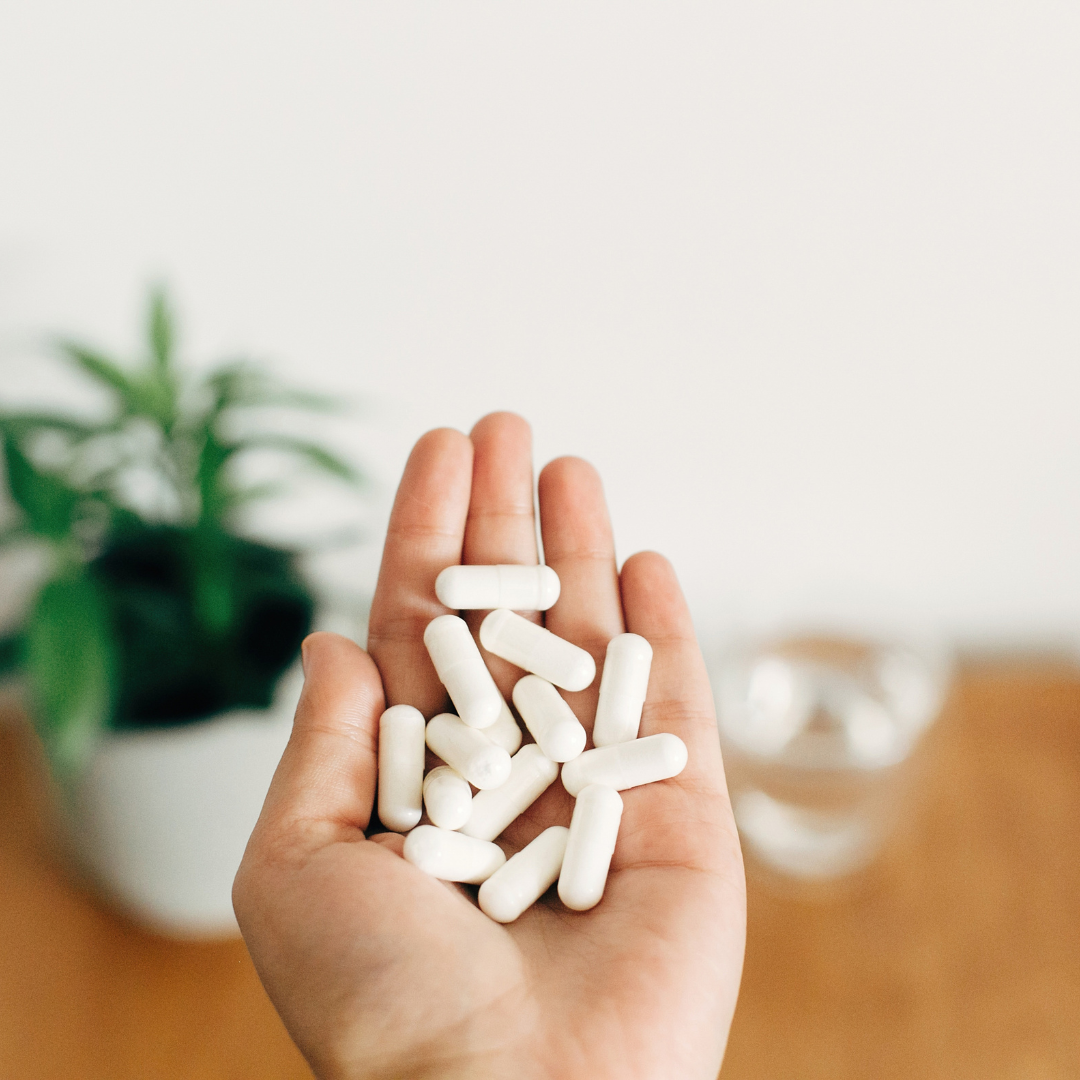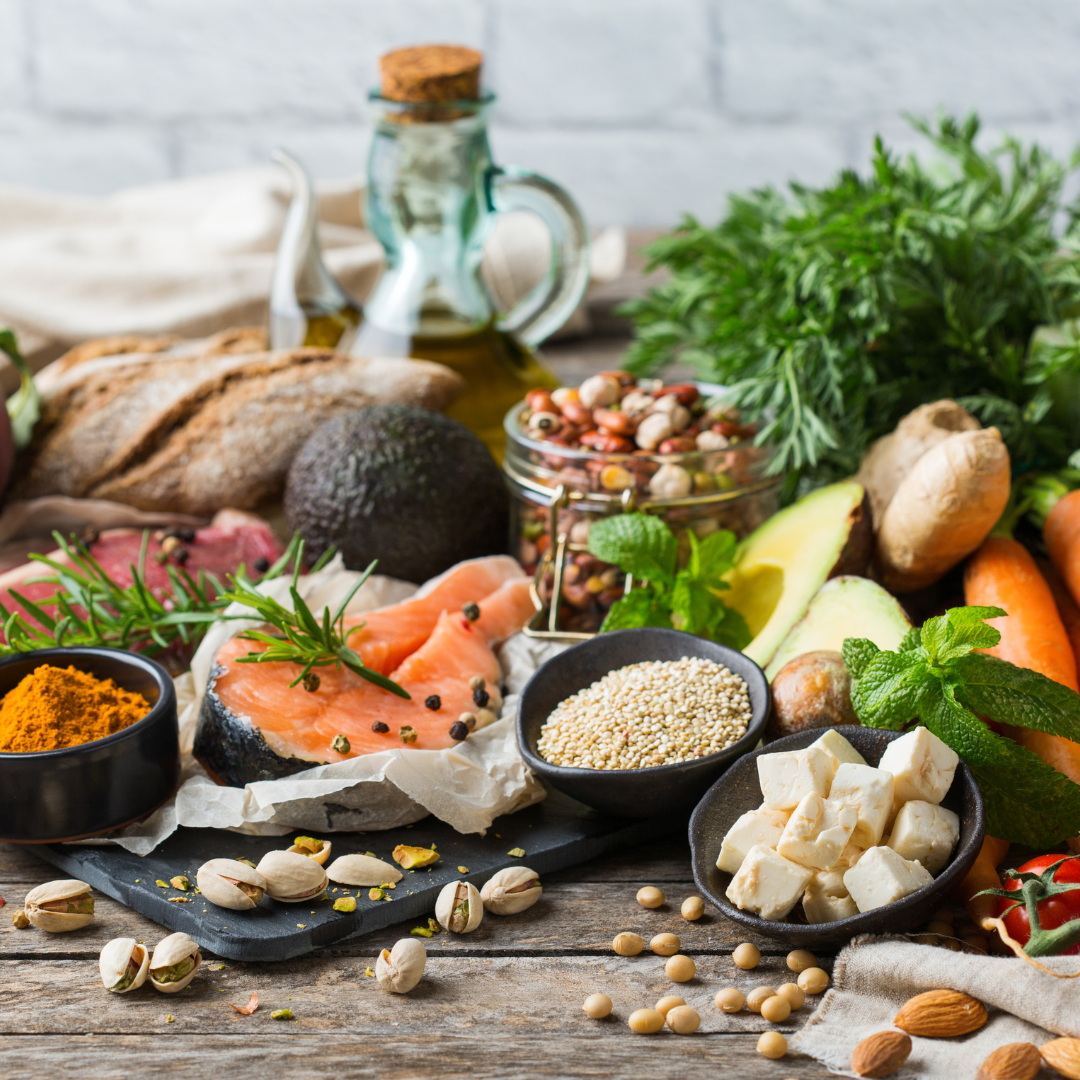Herbal Remedies for Hypothyroidism: What Works & Why
For many people with hypothyroidism, waking up every morning feeling exhausted, even after a full night’s sleep, and struggling with brain fog, weight gain, and a sense of constant fatigue, is a daily reality. The thyroid, a small gland in the neck, has a huge impact on overall health and well-being. When it doesn’t produce enough thyroid hormones, every system in the body can feel the effects.
Conventional treatments for hypothyroidism often focus on hormone replacement therapy, which can be essential. However, the benefits of integrating herbal remedies into your treatment plan are often overlooked. Herbs have been used for centuries to support thyroid function and overall endocrine health. By tapping into the power of herbal medicine, you can address underlying imbalances, reduce symptoms, and improve your quality of life naturally. In this article, we’ll explore some of the most effective herbal remedies for hypothyroidism, shedding light on what works and why.
Ashwagandha: Balancing Thyroid Hormones
Ashwagandha (Withania somnifera) is a powerful adaptogenic herb that has been used in Ayurvedic medicine for centuries. Its primary role is to help the body adapt to stress, but it also has specific benefits for thyroid health, particularly in cases of hypothyroidism.
How Ashwagandha Works
Ashwagandha supports the thyroid by modulating the hypothalamic-pituitary-adrenal (HPA) axis, which plays a crucial role in hormone regulation. This herb helps balance cortisol levels, the body’s primary stress hormone, which can negatively impact thyroid function when chronically elevated. By reducing stress and balancing cortisol, ashwagandha indirectly supports thyroid hormone production.
Benefits of Ashwagandha for Hypothyroidism
Research has shown that ashwagandha can increase the production of thyroid hormones T3 (triiodothyronine) and T4 (thyroxine). In a study published in the Journal of Alternative and Complementary Medicine, participants with subclinical hypothyroidism who took ashwagandha experienced significant improvements in thyroid hormone levels compared to those who took a placebo.
In addition to boosting thyroid hormone levels, ashwagandha can help alleviate common symptoms of hypothyroidism, such as fatigue, brain fog, and low energy. Its adaptogenic properties enhance overall vitality and resilience, making it easier to cope with the daily challenges of living with hypothyroidism.
How to Use Ashwagandha
Ashwagandha is available in various forms, including capsules, powders, and tinctures. A common dosage for supporting thyroid health is 300-600 mg of standardized extract taken once or twice daily. However, it’s essential to consult with a healthcare provider before starting any new supplement, especially if you are already on thyroid medication, to ensure it’s safe and appropriate for your individual needs.
By incorporating ashwagandha into your health regimen, you can support your thyroid function naturally and improve your overall well-being. This herb not only helps balance thyroid hormones but also enhances your body’s ability to handle stress, making it a valuable ally in managing hypothyroidism.
Bladderwrack: Boosting Iodine Levels
Bladderwrack (Fucus vesiculosus) is a type of seaweed known for its high iodine content, which is crucial for thyroid hormone production. Iodine deficiency is a common cause of hypothyroidism, and incorporating bladderwrack can help ensure your body has the necessary building blocks for thyroid hormones.
How Bladderwrack Works
Iodine is an essential nutrient for the synthesis of thyroid hormones T3 and T4. Bladderwrack provides a natural and bioavailable source of iodine, making it an effective supplement for those with iodine-deficient hypothyroidism. By replenishing iodine levels, bladderwrack can support normal thyroid function and hormone production.
Benefits of Bladderwrack for Hypothyroidism
Bladderwrack has been traditionally used to support thyroid health and treat hypothyroidism. By boosting iodine intake, it helps restore normal thyroid hormone levels, improving symptoms such as fatigue, weight gain, and sluggish metabolism. Additionally, bladderwrack contains other beneficial compounds, such as fucoidans and polyphenols, which have anti-inflammatory and antioxidant properties, further supporting overall health.
How to Use Bladderwrack
Bladderwrack is available in dried, powdered, or capsule form. A typical dosage is 250-500 mg of dried bladderwrack taken once daily. However, it’s important to monitor your iodine intake and consult with a healthcare provider, as excessive iodine can also cause thyroid problems.
Bacopa Monnieri: Cognitive Support
Bacopa monnieri is an herb traditionally used in Ayurvedic medicine to enhance cognitive function and support overall brain health. For individuals with hypothyroidism, bacopa can help alleviate cognitive symptoms such as brain fog and memory issues.
How Bacopa Monnieri Works
Bacopa supports thyroid function by enhancing the production of thyroid hormones and reducing oxidative stress in the thyroid gland. It also has neuroprotective effects, promoting the growth of nerve cells and improving communication between neurons, which can help counteract cognitive deficits associated with hypothyroidism.
Benefits of Bacopa Monnieri for Hypothyroidism
Research suggests that bacopa can improve thyroid hormone levels, particularly T4, thereby supporting thyroid function. It also helps enhance cognitive function, memory, and focus, which are often impaired in individuals with hypothyroidism. Additionally, bacopa’s antioxidant properties protect the thyroid gland from damage caused by oxidative stress.
How to Use Bacopa Monnieri
Bacopa is commonly available in capsule or powder form. A standard dosage is 300-450 mg of a standardized extract taken once daily. It’s advisable to consult with a healthcare provider to determine the appropriate dosage for your specific needs.
Guggul: Enhancing T4 to T3 Conversion
Guggul (Commiphora mukul) is a resin extracted from the mukul myrrh tree, traditionally used in Ayurvedic medicine. It is known for its ability to support thyroid function by enhancing the conversion of T4 to T3, the active form of thyroid hormone.
How Guggul Works
Guggul contains compounds called guggulsterones, which have been shown to stimulate thyroid function and increase the conversion of T4 to T3. This is particularly beneficial for individuals with hypothyroidism, where the conversion process is often impaired.
Benefits of Guggul for Hypothyroidism
By enhancing the conversion of T4 to T3, guggul helps increase the levels of active thyroid hormone in the body, improving metabolic function and alleviating symptoms such as fatigue and weight gain. Guggul also has anti-inflammatory and antioxidant properties, which can protect the thyroid gland and support overall health.
How to Use Guggul
Guggul is available in capsule or tablet form. A common dosage is 75-150 mg of guggulsterones taken once or twice daily. As with any supplement, it’s important to consult with a healthcare provider to ensure the correct dosage and to avoid potential interactions with other medications.
Rhodiola Rosea: Reducing Stress and Fatigue
Rhodiola rosea is an adaptogenic herb known for its ability to reduce stress and combat fatigue. For individuals with hypothyroidism, Rhodiola can help manage the stress that often exacerbates thyroid dysfunction and related symptoms.
How Rhodiola Rosea Works
Rhodiola helps balance the body’s stress response by modulating the HPA axis and reducing cortisol levels. Lowering cortisol levels can alleviate stress and its negative impact on thyroid function. Additionally, Rhodiola boosts energy levels and enhances physical and mental performance.
Benefits of Rhodiola Rosea for Hypothyroidism
By reducing stress and fatigue, Rhodiola supports overall thyroid health and helps mitigate symptoms such as exhaustion and brain fog. Its adaptogenic properties enhance resilience to physical and emotional stress, making it easier for individuals with hypothyroidism to manage their condition and maintain energy levels.
How to Use Rhodiola Rosea
Rhodiola is available in capsule, tablet, or tincture form. A typical dosage is 200-400 mg of standardized extract taken once or twice daily. It’s best to start with a lower dose and gradually increase it, and to consult with a healthcare provider to determine the appropriate dosage for your needs.
Nettle: Nutrient Powerhouse
Nettle (Urtica dioica) is a nutrient-dense herb that provides essential minerals and vitamins important for thyroid health. Its high content of iron, magnesium, selenium, and vitamin C makes it a valuable addition to a thyroid-supportive regimen.
How Nettle Works
Nettle supports thyroid health by providing key nutrients that are often deficient in individuals with hypothyroidism. Iron is crucial for thyroid hormone production, while selenium is essential for the conversion of T4 to T3. Vitamin C enhances the absorption of these minerals and supports overall immune function.
Benefits of Nettle for Hypothyroidism
By replenishing essential nutrients, nettle helps support thyroid function and improve symptoms of hypothyroidism, such as fatigue and anemia. Its anti-inflammatory properties also help reduce thyroid gland inflammation, promoting better thyroid health.
How to Use Nettle
Nettle can be consumed as a tea, tincture, or in capsule form. A common dosage is 300-500 mg of dried nettle leaf taken once or twice daily. Nettle tea can be consumed 2-3 times a day. As always, consult with a healthcare provider to determine the best form and dosage for your needs.
Licorice Root: Supporting Adrenal Health
Licorice root (Glycyrrhiza glabra) is known for its ability to support adrenal health and manage the stress response, which is often linked to thyroid dysfunction. By balancing adrenal function, licorice root can indirectly support thyroid health.
How Licorice Root Works
Licorice root helps regulate cortisol levels and supports adrenal gland function, which can be particularly beneficial for individuals with hypothyroidism who also experience adrenal fatigue. By balancing cortisol, licorice root helps reduce stress and its negative impact on thyroid function.
Benefits of Licorice Root for Hypothyroidism
By supporting adrenal health and reducing stress, licorice root helps improve energy levels, reduce fatigue, and enhance overall thyroid function. Its anti-inflammatory properties also help protect the thyroid gland and support immune health.
How to Use Licorice Root
Licorice root is available in capsules, tablets, and tinctures. A typical dosage is 200-400 mg of standardized extract taken once or twice daily. It’s important to use licorice root under the guidance of a healthcare provider, especially if you have high blood pressure, as it can increase blood pressure in some individuals.
Schisandra Chinensis: Endocrine Support
Schisandra chinensis is an adaptogenic herb that supports overall endocrine health and helps manage stress, which can positively impact thyroid function. It is known for its ability to enhance physical endurance and resilience to stress.
How Schisandra Chinensis Works
Schisandra modulates the HPA axis, reducing stress and balancing cortisol levels. By supporting the endocrine system, it helps maintain optimal thyroid function and hormone balance. Schisandra also has antioxidant properties that protect the thyroid gland from oxidative stress.
Benefits of Schisandra Chinensis for Hypothyroidism
By reducing stress and enhancing resilience, Schisandra helps improve energy levels, mental clarity, and overall thyroid function. Its adaptogenic properties make it a valuable herb for managing the symptoms of hypothyroidism and improving quality of life.
How to Use Schisandra Chinensis
Schisandra is available in capsule, tablet, and tincture form. A common dosage is 500-1000 mg of dried fruit extract taken once or twice daily. As with any supplement, it’s important to consult with a healthcare provider to determine the appropriate dosage for your needs.
Conclusion
Managing hypothyroidism can be a complex journey, but incorporating herbal remedies offers a natural and holistic approach to support thyroid health and improve overall well-being. By leveraging the benefits of herbs like ashwagandha, bladderwrack, bacopa monnieri, guggul, Rhodiola rosea, nettle, licorice root, and Schisandra chinensis, you can address the underlying imbalances that contribute to hypothyroidism and enhance your body’s ability to function optimally.
Each of these herbs brings unique properties that help balance thyroid hormones, reduce stress, boost energy, and improve cognitive function. Integrating them into your health regimen can provide significant relief from the symptoms of hypothyroidism and support your journey toward better health.
Remember, every individual is unique, and what works for one person might not work for another. That’s why personalized guidance can make all the difference. If you’re ready to take control of your thyroid health and improve your well-being, consider scheduling a 1:1 consultation with me. Together, we can create a customized plan tailored to your specific needs, incorporating the best herbal remedies and lifestyle strategies to support your thyroid function and overall health.
Don’t let hypothyroidism hold you back any longer. Learn more about my consulting services and start your journey to optimal health today. Click HERE to schedule your consultation and take the first step towards a healthier, more balanced you.




